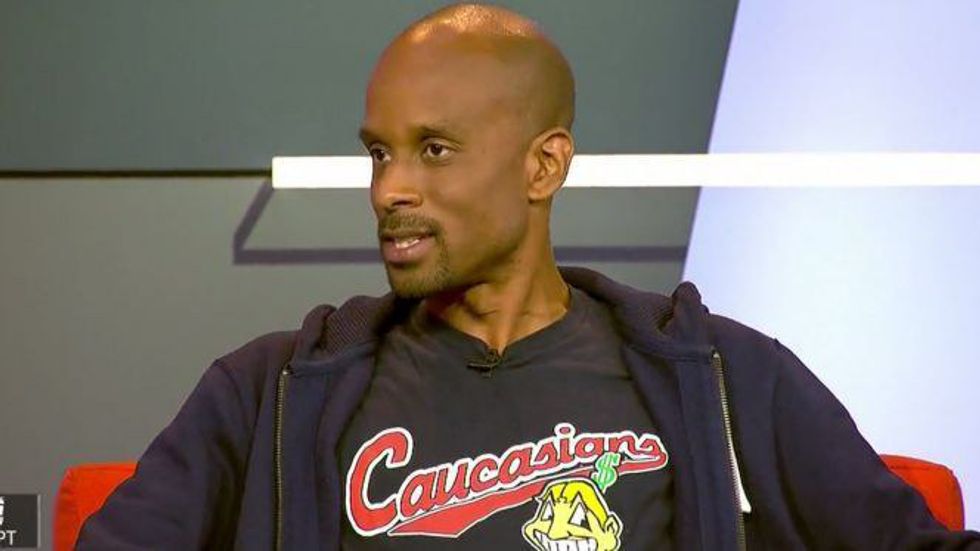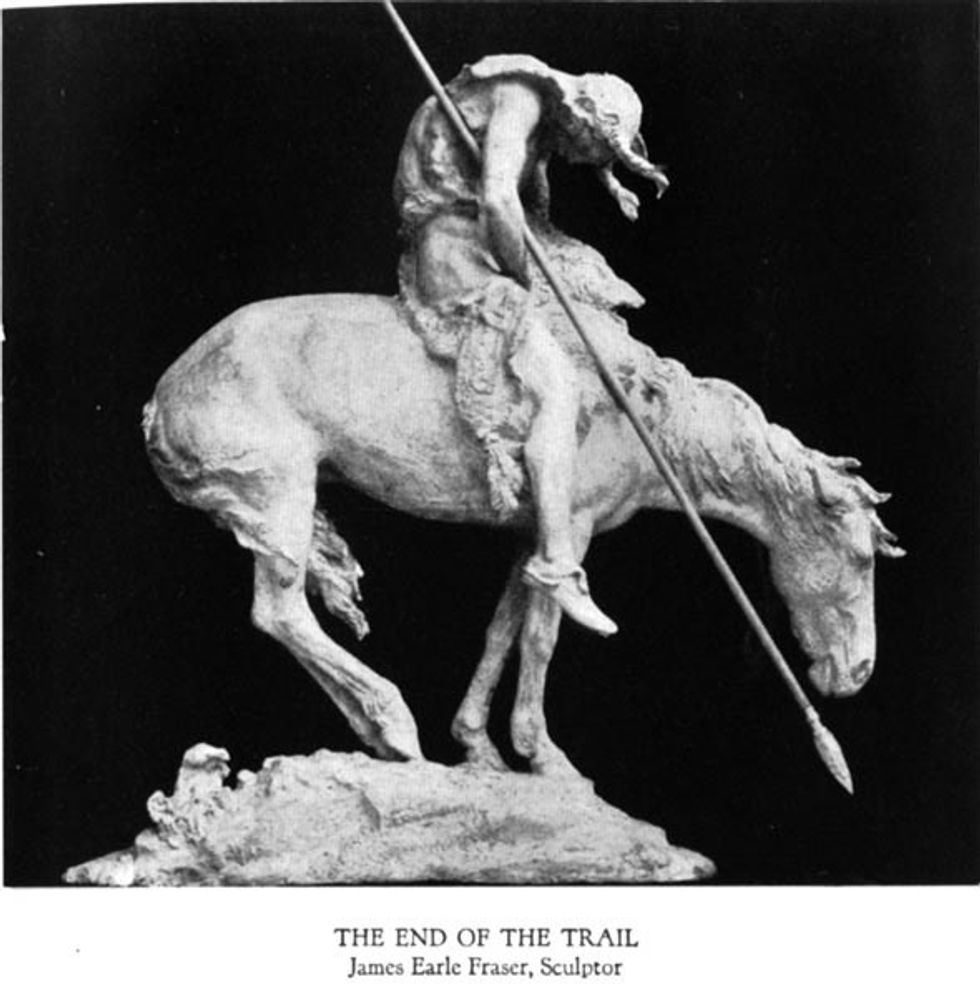Chief Wahoo, the passively racist mascot for the Cleveland Indians received somewhat of a makeover. Well at least on ESPN contributor Bomani Jones’ t-shirt which replaced the stylized “Indians” with a tongue and cheek “Caucasians”. This brilliant design is accompanied by a parody of the mascot, a blonde white man outfitted with a dollar sign at the back of his head rather than the usual feather.
Offended? Well let me ask you one important question? Does the original team name and mascot upset your sensibilities as well? If not, then it might be time for self assessment.
An image based solely on misrepresentation and racial stereotypes has no place in professional sport. Unfortunately, many disagree. Social media erupted in a debate over the T-shirt in question with a few fans even going as far as to call for Jones’ resignation. It’s painfully evident that this statement succeeded to a worrisome degree. This racist double standard has been unearthed, demonstrating to what extent Chief Wahoo alongside the outdated epithet are offensive.
Firstly, this reference to a passively racist term seems to go largely unquestioned. Let’s get a few things straight, a Native American or Indigenous individual is not an “Indian”. This title refers to settlers believing they had arrived in India when in reality they had landed on an entirely different continent which led to the subsequent naming of Indigenous peoples as “Indians”. Not only is it entirely false to begin with, it stands as a symbol of America’s inability to correct its own racist tendencies. Heads up, if you’re white or any other creed and you are using this epithet regularly to describe Indigenous communities, you may want to educate yourself and cut it out. Native American is the preferred term in the United Sates. Returning to the subject of the team in question, the use of “Indians” as a team name trivializes racism towards First Nation communities. The significance of this offense is staggering. How can a country learn to progress if large sport entities continue to uphold blatant racism? Like the hateful rhetoric Donald Trump spews on a regular basis, it offers an ignorant community an excuse to remain unchanged. Since an important entity which reaches masses of people can coin the term and use it casually, what’s standing in the way of your average American citizen?
Secondly, the mascot Chief Wahoo further reinforces a false, dated and romanticized stereotype of Native American people. Native American communities have been plagued with the unrelenting image of the “Noble Savage”; a demographic which is not modern and does not fit into our current society. If ever you need proof, the popularity of James Earle Fraser’s End of the Trail, 1918 across America is despairingly telling. This statue, underserving of its iconic status, depicts a traditionally garbed Native American warrior slumped over his horse. Both are dying, they are depleted and their life force has run out. This deeply offensive work of art romanticizes the death of the “Noble Savage” and discounts the presence of modern Indigenous individuals. End of the Trail has been reproduced countless times and can be found all across the United Sates. America is unwilling to accept Native American people as a factor in modern life and prefer to desperately hold on to these outdated, romanticized and wholly false stereotypes of the “American Indian”.
Back to the subject at hand, the transformation of an MLB icon into a white capitalist pig. The dollar sign may be more fitting, considering how much revenue the lovable mascot generates. What ultimately halts progressive change can be credited to an inability to let go of a fantasy of “Indian Warriors” or the unwillingness to change our ways out of pure apathy, but what may stand most firmly in the way could be capital; and as we know corporations will fight tooth and nail for the preservation of blatant racism as long as it fills their pockets.
PS. I feel it is imperative to underline the terms Native, Indian, and Eskimo are abhorred in Canada. If you ever travel up North ensure to use First Nations, Indigenous, or Metis when referring to the “Native” populations. I only bring this up as in my time in America, after explaining the roots of my Metis heritage, someone then asked for clarification by asking if I was “part Eskimo?” That’s a large misstep.





















